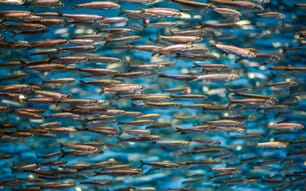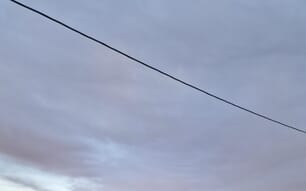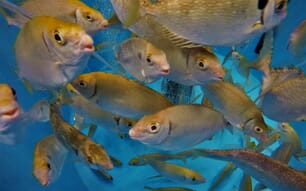"We found a strong correlation between the increased amount of free fatty acids and mortality in cod larvae. Even small amounts can be deadly," says a researcher at NIFES, ystein Blessed.
Free fatty acids are the chemical form of fat gets after the original molecular structures are broken down during digestion. The fat can be digested artificially by means of hydro stabilization before adding food.
"The discovery means that one must be very careful that the contents of free fatty acids in the feed for farmed cod is as low as possible. There is no margin of safety," says Blessed.
A common assumption has been that it is oxidation of free fatty acids that cause toxic food for cod. NIFES study disprove this theory. The researchers tested the relevant genetic markers of stress, but found no effect.
In the experiments, groups of cod larvae fed for 30 days with six diets with different amounts forfordyd (hydrolysed) fat. After just a few days the larvae had problems. Mortality increased with the amount of free fatty acids in the feed.
"We thought the fine would cope with the lowest values. But they did not. On the contrary, we saw that after a short time and small amounts of free fatty acids was fatal damage to the intestine. Finally, the cell walls of the intestine in the resolution," said Blessed.
Now we hope he and the research team at NIFES to have the opportunity to do model studies in zebrafish. This way they can get more general knowledge about how the free fatty acids affect the organisms. This knowledge may eventually be relevant for human medicine.
"There is little research before in this field. An older study in piglets suggest that the mechanisms in the intestines of mammals are very similar to those found in fish. But this is too early to say anything substantial about," says Blessed.
Free fatty acids are the chemical form of fat gets after the original molecular structures are broken down during digestion. The fat can be digested artificially by means of hydro stabilization before adding food.
"The discovery means that one must be very careful that the contents of free fatty acids in the feed for farmed cod is as low as possible. There is no margin of safety," says Blessed.
A common assumption has been that it is oxidation of free fatty acids that cause toxic food for cod. NIFES study disprove this theory. The researchers tested the relevant genetic markers of stress, but found no effect.
In the experiments, groups of cod larvae fed for 30 days with six diets with different amounts forfordyd (hydrolysed) fat. After just a few days the larvae had problems. Mortality increased with the amount of free fatty acids in the feed.
"We thought the fine would cope with the lowest values. But they did not. On the contrary, we saw that after a short time and small amounts of free fatty acids was fatal damage to the intestine. Finally, the cell walls of the intestine in the resolution," said Blessed.
Now we hope he and the research team at NIFES to have the opportunity to do model studies in zebrafish. This way they can get more general knowledge about how the free fatty acids affect the organisms. This knowledge may eventually be relevant for human medicine.
"There is little research before in this field. An older study in piglets suggest that the mechanisms in the intestines of mammals are very similar to those found in fish. But this is too early to say anything substantial about," says Blessed.




